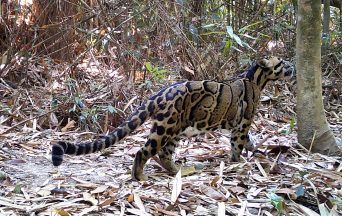Switching dogs and cats to a vegan diet would make greenhouse gas emissions savings equal to those produced by Saudi Arabia or Australia, a new study estimates.
If the world’s dogs and cats switched to vegan diets then billions of animals would be spared from slaughter.
The fewer animals that needed for slaughter means there would be more calories available for people – and pets, the research at the University of Winchester. That’s because for every 1kg of high-quality animal 6kg of plant protein is needed.
The world going vegan would also free up vast tracts of land that could be rewilded allowing nature to recover and reduce pollution from animal faeces that often spills into rivers and lakes, further damaging ecosystems.

Numerous studies over the last 15 years have shown dogs and cats can lead healthy lives on nutritionally sound plant-based diets provided they are made to contain essential nutrients normally found in meat.
Researchers have now begun to quantify the environmental impact of pet diets and how that could change if they went vegan.
Professor Andrew Knight of Griffith University, Australia, estimates this would stop the slaughter of around seven billion livestock animals and billions more aquatic creatures.
A 2018 estimate put the global dog population at 471 million with the collective weight of all canines equal to that of all the remaining wild land mammals.
Vegan pet diets are usually formed from plants but they could in future also be made using yeast, fungi or seaweed, as some companies are using to develop meat alternatives for humans.

Prof Knight said: “This study shows environmental benefits when vegan diets are used to feed not just people, but dogs and cats as well.
“However, to safeguard health it’s important that people feed only vegan pet food labelled as nutritionally complete, produced by reputable companies with good standards.”
He also stressed that the pet population and animal energy requirement data he used might underestimate the true environmental benefits of vegan diets and that he had to make some assumptions, so more research is required to make his findings more reliable.
For example, Prof Knight referenced US data when working out global dietary ingredients instead of working out all the various national differences.
He also estimated environmental impacts using data from 2009-2011 which, if more recent, would give more accurate results.
Follow STV News on WhatsApp
Scan the QR code on your mobile device for all the latest news from around the country





























